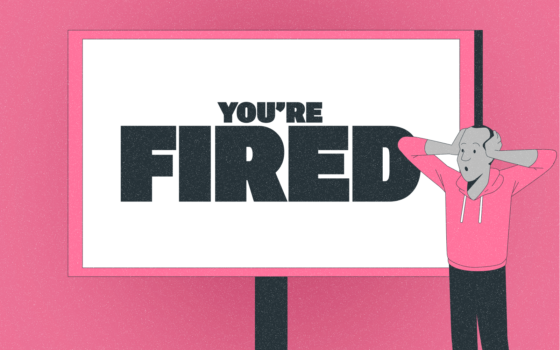Personality Interview
Understanding Personality Interviews in HR
Personality interviews have become an integral part of the hiring process in many organizations. These interviews are designed to assess a candidate's character traits, behaviors, and attitudes that may not be readily apparent from their resume or technical skills. By delving into a person's personality, employers aim to determine how well a potential employee will fit into the company culture and perform in specific roles.
In essence, a personality interview is a structured conversation that goes beyond the typical questions about work experience and qualifications. It focuses on understanding how a candidate thinks, reacts to various situations, and interacts with others. This type of interview can provide valuable insights into a person's work style, communication skills, and potential for success within a particular organization.
The Purpose and Importance of Personality Interviews
The primary purpose of conducting personality interviews is to evaluate a candidate's soft skills and personal attributes. These factors can be crucial in determining long-term success and job satisfaction. Here are some key reasons why personality interviews have gained prominence in the recruitment process:
- Assessing cultural fit: Personality interviews help determine if a candidate's values and work style align with the company's culture.
- Predicting job performance: Certain personality traits may be indicative of success in specific roles or industries.
- Identifying potential leaders: These interviews can reveal leadership qualities and potential for growth within the organization.
- Reducing turnover: By ensuring a good fit between the candidate and the company, personality interviews can contribute to higher employee retention rates.
- Complementing technical assessments: While technical skills are important, personality traits can often be equally crucial for job success.
Common Techniques Used in Personality Interviews
Interviewers employ various techniques to gain insights into a candidate's personality during these specialized interviews. Some of the most commonly used approaches include:
1. Behavioral Questions
Behavioral questions ask candidates to describe how they have handled specific situations in the past. The premise is that past behavior is a good indicator of future performance. Examples of behavioral questions include:
- "Tell me about a time when you had to deal with a difficult coworker."
- "Describe a situation where you had to adapt to a significant change at work."
- "Can you share an example of how you've handled a stressful deadline?"
2. Situational Questions
Situational questions present hypothetical scenarios and ask candidates how they would respond. These questions assess problem-solving skills and decision-making abilities. For instance:
- "Imagine you're leading a project and one of your team members is consistently underperforming. How would you handle this situation?"
- "If you were faced with an ethical dilemma at work, what steps would you take to resolve it?"
3. Open-ended Questions
Open-ended questions allow candidates to express themselves freely and provide insights into their thought processes. Examples include:
- "What motivates you in your work?"
- "How do you define success?"
- "What are your long-term career goals?"
4. Personality Assessments
Some organizations incorporate formal personality assessments as part of the interview process. These may include tests like the Myers-Briggs Type Indicator (MBTI), the Big Five personality test, or the DiSC assessment. While these tools can provide valuable insights, it's important to use them in conjunction with other interview techniques and not rely on them exclusively.
Key Personality Traits Assessed in Interviews
During personality interviews, recruiters and hiring managers often focus on specific traits that are relevant to the job and organization. Some of the key personality traits commonly assessed include:
1. Adaptability
In today's rapidly changing work environment, adaptability is a highly valued trait. Interviewers look for candidates who can demonstrate flexibility and the ability to thrive in dynamic situations.
2. Emotional Intelligence
Emotional intelligence encompasses self-awareness, self-regulation, motivation, empathy, and social skills. Candidates with high emotional intelligence are often better equipped to handle interpersonal relationships and navigate workplace challenges.
3. Teamwork and Collaboration
Most jobs require some degree of teamwork, so assessing a candidate's ability to work effectively with others is crucial. Interviewers look for evidence of strong communication skills, empathy, and the ability to compromise.
4. Leadership Potential
Even for non-managerial positions, leadership qualities can be valuable. These may include traits such as initiative, decisiveness, and the ability to inspire and motivate others.
5. Resilience
Resilience refers to a person's ability to bounce back from setbacks and persevere in the face of challenges. This trait is particularly important in high-pressure work environments.
6. Creativity and Innovation
Many organizations value employees who can think outside the box and contribute new ideas. Personality interviews may assess a candidate's creative problem-solving skills and willingness to take calculated risks.
Challenges and Limitations of Personality Interviews
While personality interviews can provide valuable insights, they also come with certain challenges and limitations that HR professionals and hiring managers should be aware of:
1. Subjectivity and Bias
Personality assessments can be subjective, and interviewers may inadvertently introduce their own biases into the evaluation process. It's important to have structured interview processes and multiple interviewers to mitigate this risk.
2. Candidate Preparation
With the abundance of interview preparation resources available online, candidates may come prepared with rehearsed answers that don't necessarily reflect their true personalities. Skilled interviewers need to be able to dig deeper and ask follow-up questions to get beyond surface-level responses.
3. Cultural Differences
Personality traits and behaviors that are valued in one culture may be perceived differently in another. This can be particularly challenging for organizations with a global workforce or those hiring international candidates.
4. Overemphasis on Personality
While personality is important, it shouldn't overshadow other crucial factors such as skills, experience, and qualifications. A balanced approach that considers all aspects of a candidate's profile is essential.
5. Legal Considerations
Some personality-based questions may inadvertently touch on protected characteristics, potentially leading to discrimination claims. HR professionals must ensure that all interview questions are job-related and compliant with employment laws.
Best Practices for Conducting Personality Interviews
To maximize the effectiveness of personality interviews while minimizing potential pitfalls, consider the following best practices:
1. Develop a Structured Interview Process
Create a standardized set of questions and evaluation criteria to ensure consistency across all candidates. This helps reduce bias and makes it easier to compare candidates objectively.
2. Use a Diverse Interview Panel
Having multiple interviewers from different backgrounds can provide a more well-rounded assessment of a candidate's personality and reduce individual biases.
3. Combine Multiple Assessment Methods
Don't rely solely on personality interviews. Use them in conjunction with other assessment techniques such as skills tests, work samples, and reference checks to get a comprehensive view of each candidate.
4. Provide Interviewer Training
Ensure that all interviewers are trained in effective questioning techniques, active listening, and avoiding biases. This will help them conduct more insightful and fair personality interviews.
5. Be Transparent with Candidates
Clearly communicate the purpose of the personality interview to candidates and how the information will be used in the decision-making process. This transparency can help put candidates at ease and encourage more authentic responses.
6. Regularly Review and Update Your Process
Continuously evaluate the effectiveness of your personality interview process. Gather feedback from both interviewers and successful hires to identify areas for improvement.
The Future of Personality Interviews in HR
As the field of HR continues to evolve, so too will the approaches to personality interviews. Several trends are likely to shape the future of this important assessment tool:
1. AI and Machine Learning
Artificial intelligence and machine learning algorithms are increasingly being used to analyze candidate responses and non-verbal cues during interviews. These technologies have the potential to provide more objective assessments of personality traits, although their use raises ethical considerations that need to be carefully addressed.
2. Virtual and Augmented Reality
As remote work becomes more prevalent, virtual reality (VR) and augmented reality (AR) technologies may be used to create immersive interview experiences. These tools could allow interviewers to assess how candidates respond to simulated work environments and scenarios.
3. Continuous Assessment
Rather than relying on a single interview, some organizations are moving towards continuous assessment of personality traits throughout the employee lifecycle. This approach can provide a more accurate picture of an individual's personality and how it evolves over time.
4. Focus on Diversity and Inclusion
There is a growing recognition of the importance of diversity and inclusion in the workplace. Personality interviews of the future may place greater emphasis on assessing traits such as cultural competence, empathy, and the ability to work effectively in diverse teams.
5. Integration with Data Analytics
As organizations collect more data on employee performance and engagement, personality assessments may be increasingly integrated with predictive analytics to identify the traits most likely to lead to success in specific roles or organizations.
Conclusion
Personality interviews have become an essential tool in the modern HR professional's toolkit. When used effectively, they can provide valuable insights into a candidate's character, work style, and potential for success within an organization. However, it's crucial to approach personality interviews with an awareness of their limitations and potential pitfalls.
By combining structured interview techniques with other assessment methods, providing thorough interviewer training, and staying attuned to evolving best practices, HR professionals can leverage personality interviews to make more informed hiring decisions. As technology continues to advance and our understanding of personality in the workplace deepens, we can expect personality interviews to become even more sophisticated and integral to the hiring process.
Ultimately, the goal of personality interviews is to create better matches between candidates and organizations, leading to higher job satisfaction, improved performance, and reduced turnover. When implemented thoughtfully and ethically, personality interviews can contribute significantly to building strong, cohesive teams and fostering a positive organizational culture.


